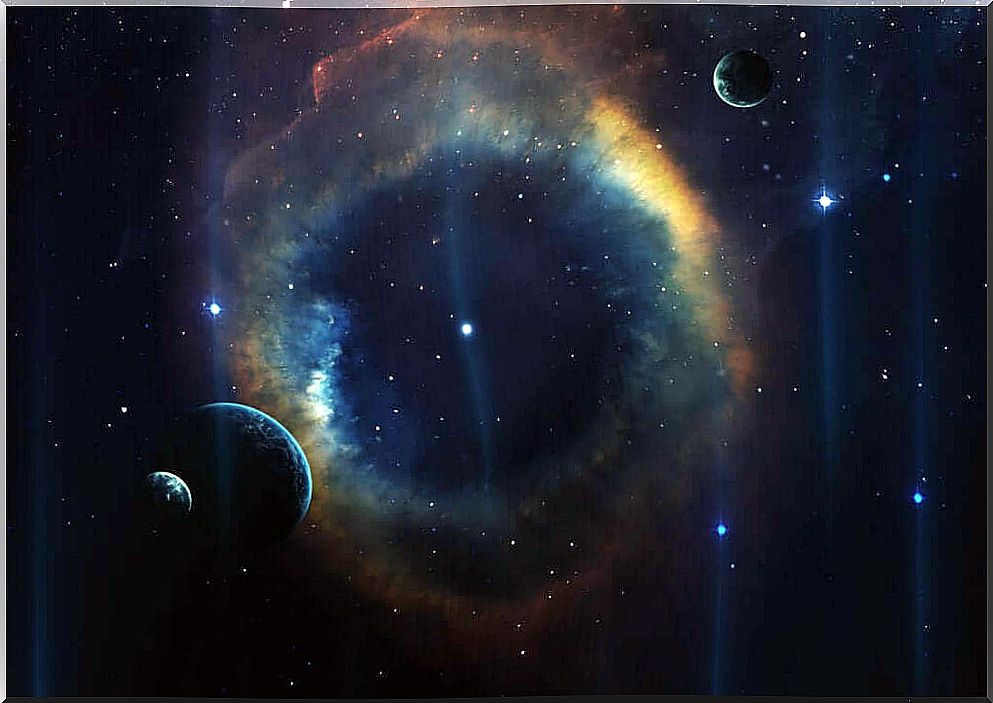4 Sentences From Tales Of Miletus About The Universe To Reflect

Today we are going to expose some phrases from Thales of Miletus (c. 624 – c. 545 BC), who founded the Ionian school of ancient Greek thinkers. At that time, he was known as one of the seven sages, and even Aristotle himself came to consider him the founder of natural philosophy, because he was the first Greek to seek the ultimate substance of things, which for Thales of Miletus was water .
He lived in Athens and, as some texts say, was educated by an Egyptian priest. As a man deeply involved in issues related to astronomy, he provided a number of explanations for cosmological events, which turned out to be supernatural.
In the end, his philosophical approach, in which everything related to celestial phenomena was questioned, resulted in the beginnings of Greek astronomy.

Phrases from Thales of Miletus: the philosopher of nature
Thales of Miletus’ hypotheses were new and bold. As reflected in The Internet Encyclopedia of Philosophy (IEP), this philosopher may have been the first to study astronomy, the first to predict solar eclipses, and the first to define the winter and summer solstices.
With no laboratories, no pipettes or any instruments, he was the first to ask humanity’s fundamental questions, such as ‘Who are we? Where we came from? Where are we going?’
Thus, next we enter the mind of this philosopher called “The Wise Astronomer”, who left us great sentences to reflect, meditate and think about our place in this infinite space that is the cosmos and our intimate relationship with it:
1. “Water is the nature of all things.”
Thales of Miletus said that we are water and we came from water, because for him water is nature itself, the source of all things and the original principle, the beginning of the universe. At that time, he believed that the Earth was a flat disk that floated on water and that the beginning of all things was water (ie, everything comes from water and eventually everything goes back to water ). Therefore, he believed that everything in the universe was just a modification of water.
Water was a material substance unique to him. As stated in a 2009 study on the nature of water called The nature of water: Thales’ arkhe , many explanations can be given for the importance of water, including its role in living processes; for Miletus, Ocean and Thetys were, in Homer’s tradition, the progenitors of the world .
Even humans are 60% water; the brain 70%, the blood 80% and the lungs 90%.
2. “The biggest is space, because it contains everything”.
For Thales, it may be that space is not infinite, but contains everything it contains, according to the philosopher. He tried to explain the structure of the universe logically and specify the order and distance between the Earth and other stars such as the Moon, Sun and stars. To do this, he made use of the results of Babylonian science.
However, much of his thinking was wrong. He gave the universe an inverse order to what it actually has, understanding that the Sun is farther away than the other stars.
3. “Isolate yourself in your inner world and reflect on the system of the universe.”
In line with previous thinking, Thales of Miletus also proposed the fact that we look inside and reflect on what we are, or what we want to be, in relation to something as immeasurable as the universe. From the smallest to the most immense and inexplicable how much the cosmos can become.
After all, if the size and age of the cosmos surpasses any normal comprehension of man, then where is our tiny, millimetric house relegated to? What is our place at that point and space in the midst of vastness and eternity? Next to that, our daily worries and concerns can seem absurd. That’s what astronomer Carl Sagan proposed.
4. “Nothing is older than God, because he was never created”
The last of the phrases from Thales of Miletus that we selected is one more of his reflections on the creation of the universe and on the origin of everything. Apparently, as stated in the IEP, for Thales, all things are full of God.
“ Judging from what has been recorded of his opinions, he seems to assume that the soul is, in a way, the cause of the movement, since he says that a stone has a soul because it makes iron move ( 405 to 20-22 ) , and some think that the soul permeates the entire universe, hence perhaps Thales’ opinion that everything is full of gods ”, commented Aristotle.









